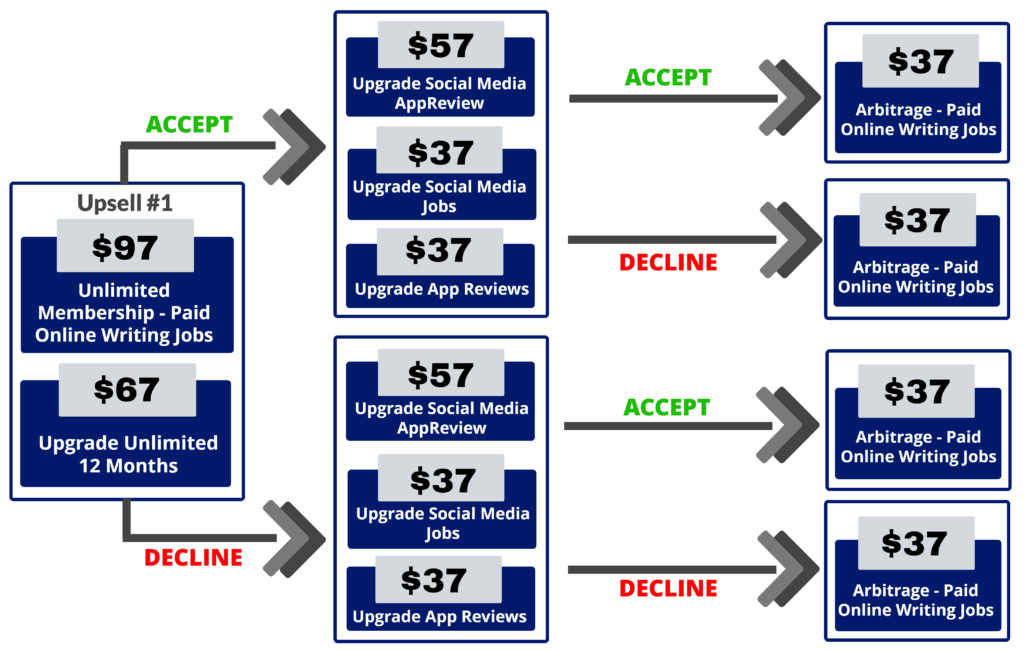Artificial Intelligence (AI) has rapidly transformed industries across the globe, with groundbreaking innovations emerging daily. From healthcare to autonomous vehicles, AI technologies are reshaping how we live, work, and interact with machines. This article delves into the most recent advancements in AI technology, highlighting key areas where AI is making the most significant impact and exploring the future of this revolutionary field.
1. Introduction to AI Technology
AI technology refers to the development of computer systems capable of performing tasks that typically require human intelligence. These tasks include problem-solving, learning, language comprehension, and decision-making. The history of AI dates back to the mid-20th century, with early pioneers like Alan Turing and John McCarthy laying the foundations for modern AI. Over the years, AI has evolved from simple rule-based systems to highly sophisticated models capable of self-learning and adapting to new environments.
The current wave of AI development is largely driven by machine learning (ML) and deep learning, which allow systems to analyze vast amounts of data and improve their performance over time. These advancements have been critical in enabling AI to tackle complex problems and deliver innovative solutions across various industries.
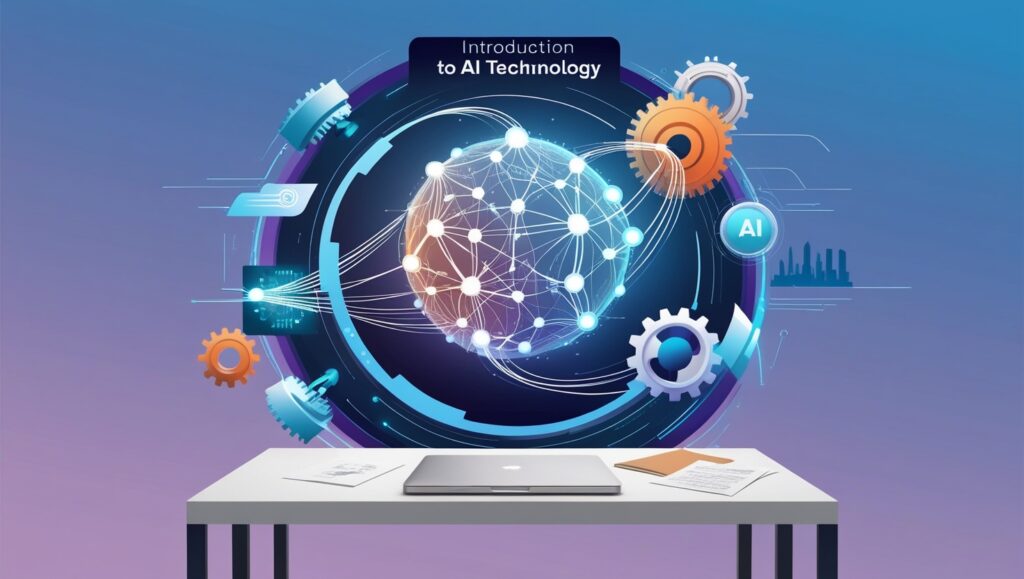
2. Current AI Technologies
AI technology can be broadly categorized into several subfields, each contributing to its overall advancement:
- Machine Learning (ML): ML enables systems to learn from data and improve without explicit programming. It is widely used in recommendation systems, such as those used by streaming platforms and online retailers.
- Deep Learning: A subset of ML, deep learning involves neural networks that mimic the human brain’s structure. This technology has led to major breakthroughs in fields like image and speech recognition.
- Natural Language Processing (NLP): NLP focuses on the interaction between computers and human language. It powers applications like chatbots, translation services, and voice-activated assistants.
These technologies serve as the backbone for most modern AI applications, driving innovation in areas like healthcare, finance, and entertainment.
3. Advancements in AI Hardware
The growth of AI is not solely limited to software advancements; hardware innovations are playing a critical role in pushing AI capabilities to new heights.
- AI Chips and Processors: Custom-designed chips, such as GPUs and TPUs, are optimized for AI tasks, significantly speeding up processes like deep learning training and inference. Companies like NVIDIA and Google are leading the way in developing these specialized processors.
- Quantum Computing in AI: Quantum computing holds the promise of revolutionizing AI by providing computational power far beyond that of traditional processors. Although still in its early stages, quantum computing could unlock new potentials for AI, particularly in fields requiring massive data processing, such as climate modeling and cryptography.

4. AI in Healthcare
AI’s impact on healthcare has been transformative, offering more accurate diagnostics, personalized treatment plans, and even aiding in drug discovery.
- AI-Powered Diagnostics: AI algorithms can analyze medical images, such as MRIs or X-rays, to detect abnormalities with greater precision than human doctors. These systems are also able to process vast datasets, identifying patterns that can lead to early diagnoses of diseases like cancer.
- Drug Discovery and Personalized Medicine: AI has accelerated the drug discovery process by predicting how different compounds will interact with the human body. In personalized medicine, AI systems analyze genetic data to recommend tailored treatments for individual patients.
5. AI in Autonomous Vehicles
The automotive industry has embraced AI, particularly in the development of self-driving cars. Autonomous vehicles rely heavily on AI to navigate complex environments, interpret sensor data, and make split-second decisions.
- Self-Driving Cars: Companies like Tesla and Waymo are leading the charge in autonomous vehicle technology. AI systems in these cars process vast amounts of data from sensors, cameras, and radar to safely navigate through traffic and avoid obstacles.
- AI in Traffic Management: Beyond autonomous driving, AI is also being used in traffic management systems to optimize traffic flow, reduce congestion, and improve overall road safety.
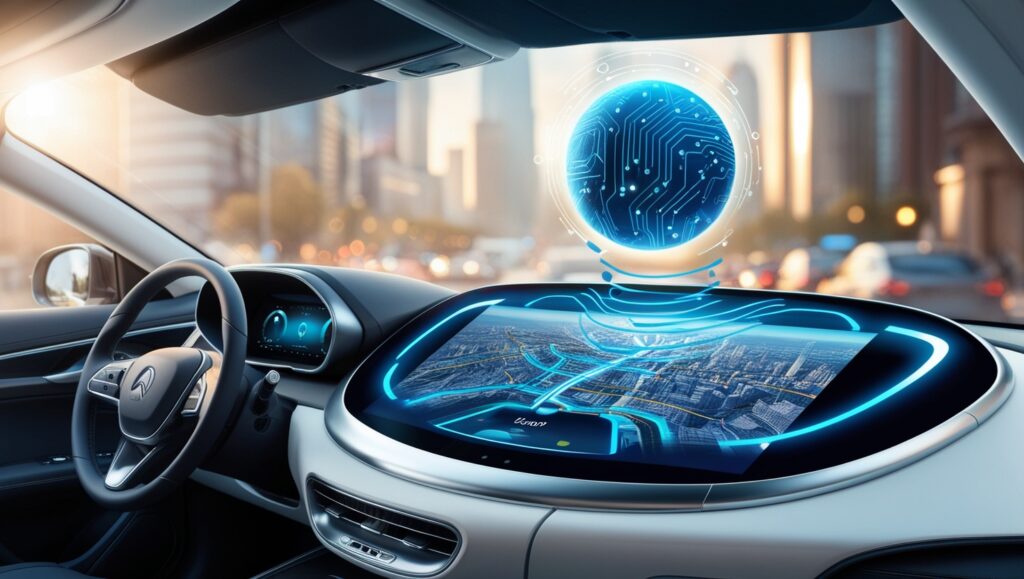
6. AI in Robotics
Robots have been a symbol of AI since its inception, and recent advancements have expanded the capabilities of AI-powered robots.
- Industrial Robots: AI has enabled robots to take on more sophisticated tasks in manufacturing, from assembly to quality control. These robots are highly adaptable and can perform tasks with precision, increasing efficiency in production lines.
- AI in Space Exploration: NASA and other space agencies are utilizing AI to control robots exploring distant planets. AI systems help these robots analyze terrain, make autonomous decisions, and even conduct experiments without human intervention.
7. AI in Education
Education is undergoing a transformation, with AI providing personalized learning experiences and streamlining administrative tasks.
- Adaptive Learning Platforms: AI-powered platforms adjust lessons based on a student’s learning pace, ensuring a more personalized education experience. These systems can identify areas where a student struggles and offer targeted exercises to help improve their understanding.
- Virtual Tutors and AI in Curriculum Development: AI-driven virtual tutors provide real-time feedback to students, while AI algorithms assist in developing curricula that are better suited to individual learning needs.
8. Ethical Considerations in AI
As AI continues to evolve, it raises important ethical questions regarding fairness, transparency, and accountability.
- Bias in AI Algorithms: AI systems can sometimes exhibit bias if trained on unrepresentative datasets. This can lead to unfair outcomes in areas such as hiring, lending, and law enforcement.
- AI and Privacy Concerns: With AI systems capable of analyzing personal data on an unprecedented scale, concerns around data privacy and security have become more prominent. Ensuring that AI respects individuals’ privacy rights is crucial for maintaining public trust.
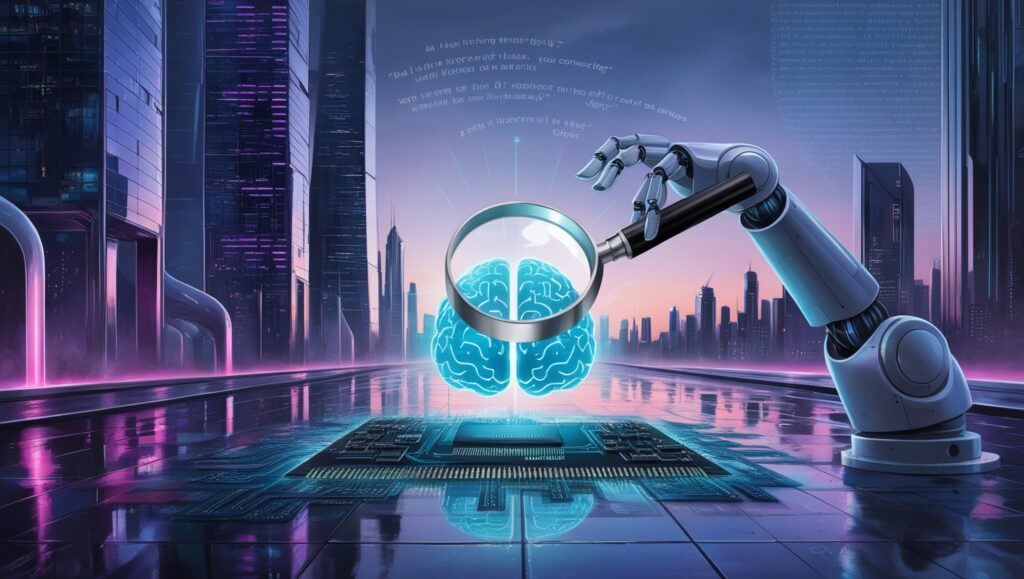
9. AI in Finance and Banking
The financial sector has been quick to adopt AI, particularly in areas like fraud detection and trading.
- AI in Fraud Detection: AI systems analyze transaction patterns to detect unusual activities that may indicate fraud. These systems can react faster than humans, preventing financial losses for institutions and individuals alike.
- AI in Algorithmic Trading: AI is used in high-frequency trading, where it can process market data and execute trades in fractions of a second, maximizing profit opportunities.
10. AI in the Entertainment Industry
The entertainment industry is leveraging AI to create new content and enhance user experiences.
- AI-Generated Content: From music and art to screenwriting, AI is increasingly being used to generate creative content. AI algorithms can analyze trends and preferences to produce content that resonates with audiences.
- AI in Gaming: AI plays a central role in game design, from creating intelligent non-player characters (NPCs) to generating dynamic environments that react to player actions.

11. AI in Agriculture
AI technologies are revolutionizing agriculture by improving productivity and efficiency.
- AI-Powered Farming Equipment: Autonomous tractors and drones are equipped with AI to monitor crops, assess soil conditions, and perform tasks like planting and harvesting with minimal human intervention.
- Predictive Analytics for Crop Yields: AI systems analyze data from weather patterns, soil health, and other factors to predict crop yields. This helps farmers make better-informed decisions about planting and resource allocation.
12. AI in Cybersecurity
With the rise of cyber threats, AI has become an indispensable tool in detecting and responding to security incidents.
- AI in Threat Detection: AI algorithms can identify potential threats by analyzing network traffic patterns and flagging suspicious activities. These systems often work faster and more accurately than traditional methods.
- AI in Automated Incident Response: Once a threat is detected, AI can automatically initiate a response, such as isolating affected systems or blocking malicious activities, minimizing the damage caused by cyberattacks.
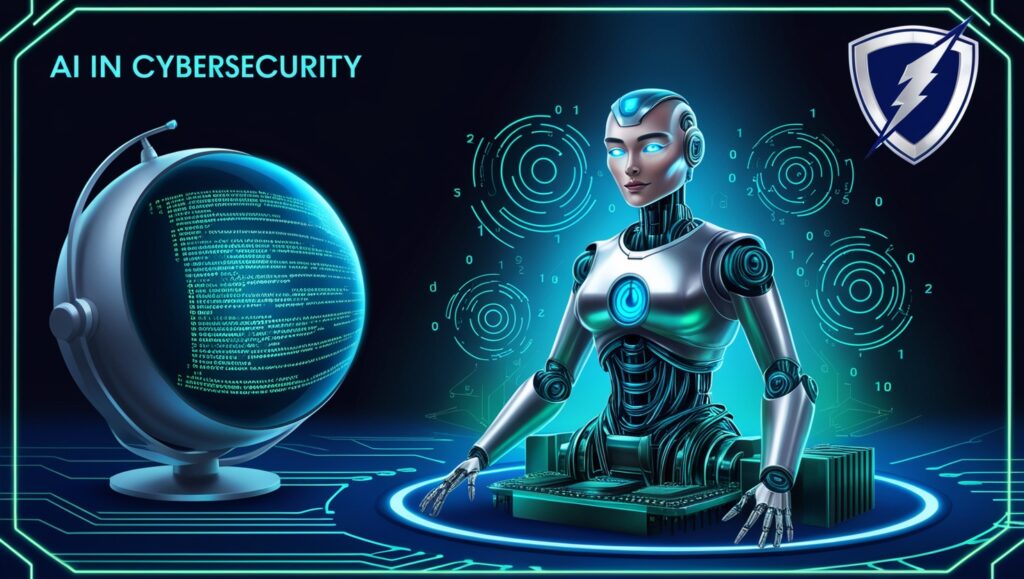
13. AI in Marketing and Customer Service
AI is transforming marketing strategies and customer service operations by providing deeper insights and automating routine tasks.
- Chatbots and Virtual Assistants: AI-powered chatbots handle customer inquiries, provide recommendations, and resolve issues in real time, improving customer satisfaction and reducing operational costs.
- AI in Predictive Analytics for Marketing Campaigns: AI analyzes customer behavior and preferences to predict future trends, helping businesses tailor their marketing efforts to better meet customer needs.
14. Future Prospects for AI Technology
Looking ahead, AI holds immense potential to solve global challenges and further push the boundaries of technology.
- The Singularity and Superintelligence: Some experts predict the eventual development of superintelligent AI, surpassing human intelligence and leading to a technological singularity. While this remains speculative, it highlights the potential of AI to transform society on a grand scale.
- AI in Climate Change Solutions: AI is already being used to monitor environmental changes and predict the impacts of climate change. In the future, AI could play a key role in developing strategies to mitigate the effects of climate change, such as optimizing energy usage or creating more sustainable agricultural practices.
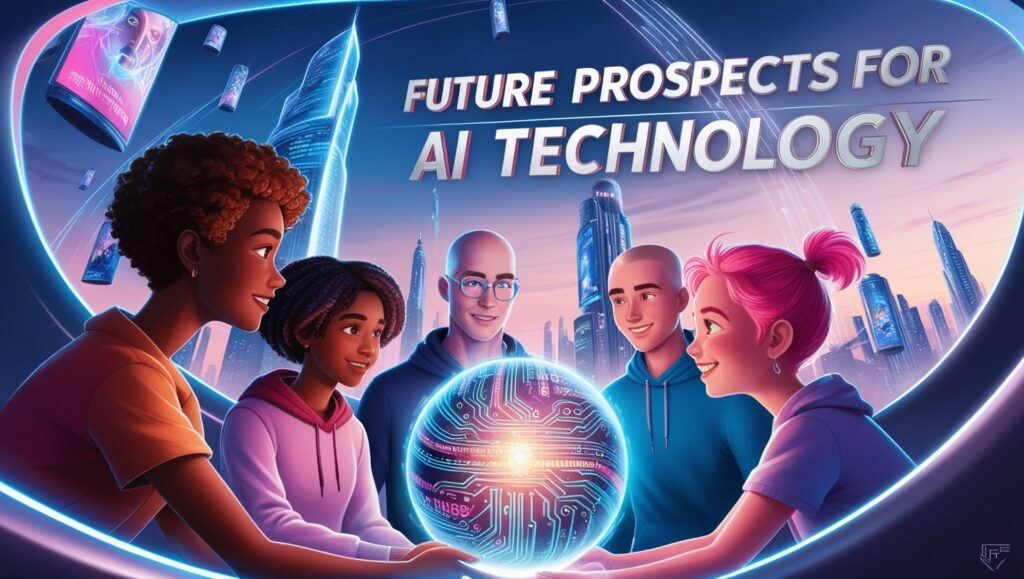
15. Conclusion
AI technology has come a long way in a relatively short period, with advancements that promise to change every aspect of our lives. From healthcare to finance, entertainment to education, AI is helping industries innovate and solve complex problems more efficiently. However, with these advancements come ethical challenges and concerns about privacy and fairness. As we look to the future, it is clear that AI will continue to play a central role in shaping the world, offering new opportunities and solutions to some of the most pressing issues of our time.
Frequently Asked Questions (FAQs)
1. What are the latest advancements in AI technology?
Recent advancements include AI in healthcare diagnostics, autonomous vehicles, AI-powered farming, and quantum computing in AI.
2. How is AI being used in healthcare?
AI is being used to enhance diagnostic accuracy, accelerate drug discovery, and offer personalized treatment plans.
3. What role does AI play in cybersecurity?
AI is crucial in detecting and responding to cyber threats, using algorithms to monitor network traffic and flag suspicious activities.
4. How does AI impact the entertainment industry?
AI is used to create content, optimize gaming experiences, and personalize user recommendations in streaming services.
5. What are the ethical concerns surrounding AI?
Key ethical concerns include bias in AI algorithms and the implications for privacy and data security.
6. What is the future of AI technology?
AI is expected to play a central role in solving global challenges, such as climate change, and may lead to the development of superintelligent systems.
Make $25 – $35 Per Hour Doing Simple Writing Jobs From Home. Full Training Provided.
No Experience Necessary.
Take a 1-minute quiz to find out what type of online writing job you are best suited to. Click ‘Start Quiz’ Below:
